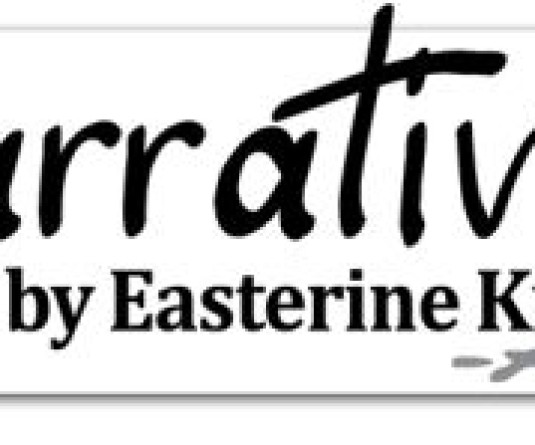
Jo Angami
Kohima
If the last one thousand years were a book, the last few pages describing the Nagas’ headfirst flight into the 21st century would be nothing short of confusing and disorienting. One page, there’s a man chasing another down the winding slopes of what would, in the next page, be Mao Market.
My mother tells me of how she and her unmarried friends ran around fields barefoot, shaved heads, stealing buns they couldn’t afford (25 paise for four), and then I look at her now, retired from a government job sending me a link on WhatsApp of the Trump family performing on X-factor, blowing Simon’s mind. To say that I’m surprised her generation hasn't collectively lost their minds seeing how fast things have changed in just the last 50 years alone isn’t an overstatement. 50 years really isn’t a long time.
But there’s a sort of exhaustion setting in on me, and probably a lot of people my age. Which is odd because I was born right around the time telephones were going out of use. My dad had bought a new shiny olive telephone just when my brain could start storing some of my friends’ phone numbers when suddenly it was a small Nokia in its place and I don’t even remember if we ever got around to using the pretty olive one.
Now this whole thing wouldn’t really have occurred to me until I sat down to read a book on Naga history. And here’s my takeaway - reading Naga History as a Naga from some of these texts feels as if I’m on this line standing alongside the British clucking my tongues at these yellow people (yes, we (they?) have been described as such). There’s this colonial lens, and it’s strange how our own writers refer to our ancestors. Naga history I agree has no bigger source than the writings, accounts, ethnographies of the British. But as Amartya Sen puts it, most of these have been written to serve the purpose of training young officers who would come to serve here. And for their intended purposes, they wouldn’t need much else. These writings, Sen observes stress on our differences more than our similarities. You might ask now, what would a ‘headhunting Asian’ have in common with a ‘civilised white man’? Well, I wish they had taken their time finding out.
Most probably I’m just picking at something that really doesn’t need to be picked at. Some of these books really aren’t proper Naga studies. And I am doing my best to seek out accounts from Nagas that are more well researched, and not just taken down from past writings. But right now, these are the books at my immediate disposal and so I’m reading a lot of stuff that feel super disconnected and in the process, I have this terrible feeling as if we’re losing a lot, caught in an invisible storm that’s taking so much from us but we can’t see it. I haven’t stated my issue clearly. So here it is - Isn’t culture more than just the exotic food and the unique clothing? There’s this sort of quality, this ‘thing’ that’s really inherent to people. Put a Japanese in western clothes, he’s just Asian until you’re told he’s Japanese. Then you think of all the qualities that are so characteristic of a Japanese person - hard work, politeness… way before you think of sakura, sushi and kimonos. A Malayali is more than just the pretty white and gold saree, she’s this long heritage of social and political activism. Take a Naga and its - Hornbill festival and unlocked palettes. And it isn’t as though I have some internalised hate, it’s just that I don’t know if I grew up with any sense of Naga identity. As long as I remember, there have always been tribal divisions, heck even Khels in villages seem constantly in opposition. And if it really is that opposition is in our inheritance, it seems odd that it doesn’t reflect in our legislature, and places where it really counts.
Now, growing up, it was all western media, some Japanese, some Indian and as I write, the Hallyu wave is at its peak. Even just last year, watching a podcast hosted by a Naga with a strong American accent talking to another with a strong Aussie accent, my mind immediately went, ‘yes we made it!’ before I even realised. I understand now that it was not the accents per se but what the accents themselves represented. And it isn’t as if I’m now against the idea of assimilating ideas from other cultures, that would be foolish. But it seems that all we’ve ever done is take. What have we to give? In terms of proper human value?
And this also brings me to the somewhat sensitive issue of the missionaries who came to us. I’ll be forever grateful for everything they have done for us - Christianity, education, healthcare, music, the list goes on. But you see, there was also this wholesale rejection of a lot of the history that we built as a people, we were around in this land even before the Ahoms were and our history only seems to matter starting the 1830s when the British set foot here. And of course in terms of eternity after death, why mourn the loss of a mere thousand years you might argue. But take for example, the Mongolian nomads who have lived in tents worshipping a sky God, and how the missionaries came to them and explained about the true God who has set up a tent to be among them. Fully binding together their heritage and the gospel. They could continue being who they were and now were more multifaceted than when the missionaries had first found them. Of course the missionaries in the 19th century didn’t have the tools and sensitivities that developed in the 20th, they really did all they could with what they had, and there are some things that can be contextualised and some that absolutely cannot. However, it isn’t to say that we should just completely forget who we were all these hundreds of years ago, to completely reject one thing for another without thoroughly looking at how we came to be and where we plan to go, if that isn’t how we have become nominal Christians, I cannot say how else. And who’s to say that, come a wave of false prophets we won’t be swept away? Or are we riding the wave right now? Is Capitalism our new heritage and money our new identity?





